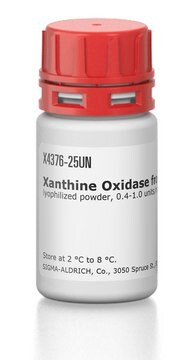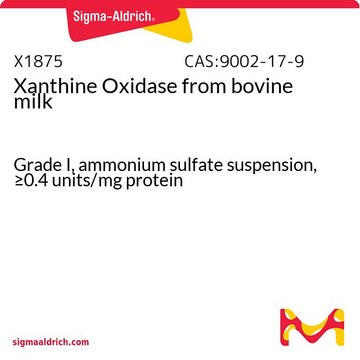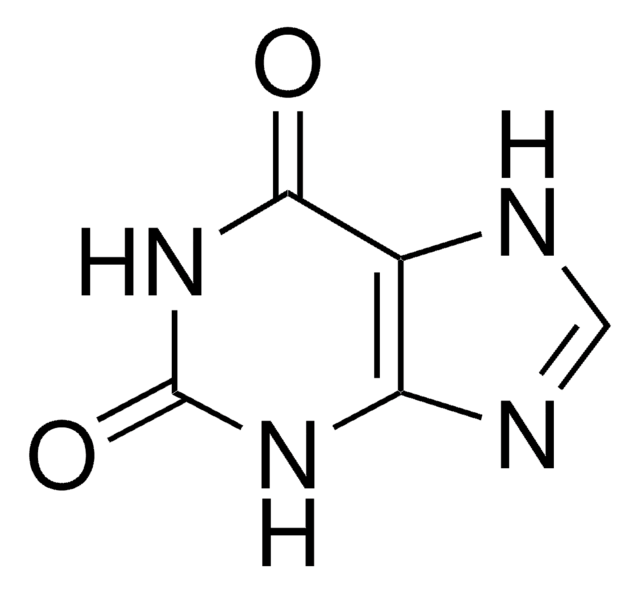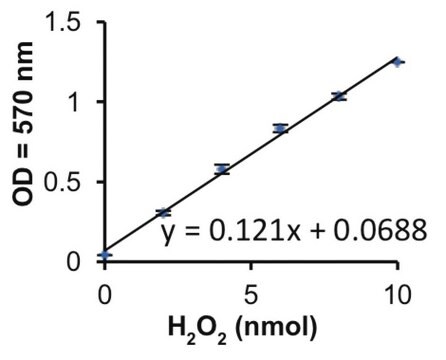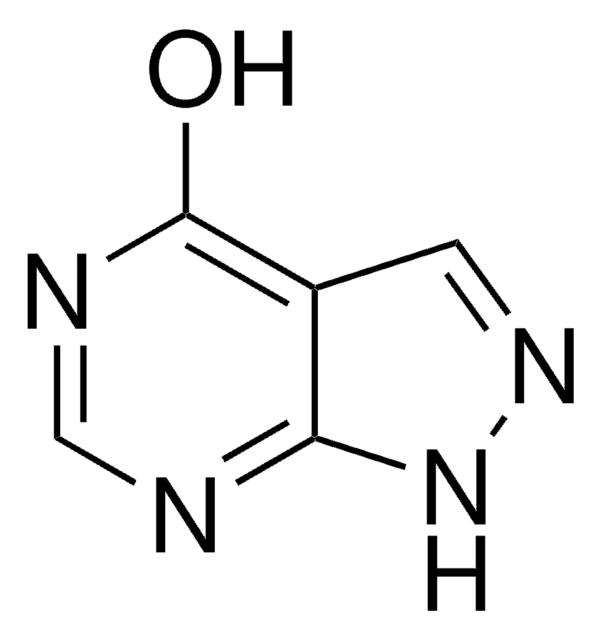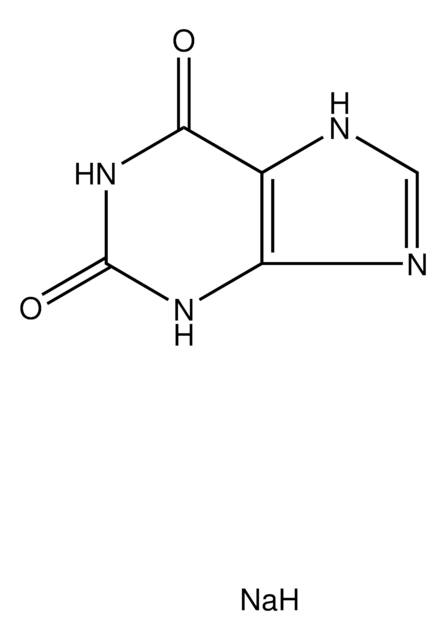X2252
Xanthine Oxidase microbial
lyophilized powder, ≥7 units/mg solid
Synonym(s):
Schardingerenzyme, XO, hypoxanthine oxidase, XOD, Xanthine:oxygen oxidoreductase
About This Item
Recommended Products
biological source
microbial
Quality Level
form
lyophilized powder
specific activity
≥7 units/mg solid
mol wt
~160 kDa
technique(s)
inhibition assay: suitable
color
brown
optimum pH
7.5-8.0
shipped in
wet ice
storage temp.
−20°C
Gene Information
Escherichia coli K12 ... xdhA(947116) , xdhB(947205) , xdhC(945148)
Looking for similar products? Visit Product Comparison Guide
General description
Xanthine Oxidase (XO), a versatile molybdoflavoprotein, is one of the forms of xanthine oxidoreductases (XORs). XO is characterized with two flavin molecules (FAD), two molybdenum atoms, and eight iron atoms bound per enzymatic unit.
Application
- to determine in vitro xanthine oxidase activity
- as a source to generate superoxide anions during superoxide dismutase assay
- as a component of the reagent mix in colorimetric paper-based device to detect allopurinol in traditional medicine by enzymatic reaction
Biochem/physiol Actions
Physical properties
Optimum pH: 7.5 - 8.0
Optimum temperature: 65oC
pH Stability: pH 6.5 - 9.0 (25oC, 15hr)
Thermal stability: below 55oC (pH 8.0, 30min)
Unit Definition
Physical form
Storage and Stability
persons
antibody
inhibitor
Signal Word
Danger
Hazard Statements
Precautionary Statements
Hazard Classifications
Resp. Sens. 1
Storage Class Code
11 - Combustible Solids
WGK
WGK 3
Flash Point(F)
Not applicable
Flash Point(C)
Not applicable
Personal Protective Equipment
Choose from one of the most recent versions:
Already Own This Product?
Find documentation for the products that you have recently purchased in the Document Library.
Customers Also Viewed
Protocols
The appearance of uric acid is measured at 293nm by spectrophotometry.
Our team of scientists has experience in all areas of research including Life Science, Material Science, Chemical Synthesis, Chromatography, Analytical and many others.
Contact Technical Service